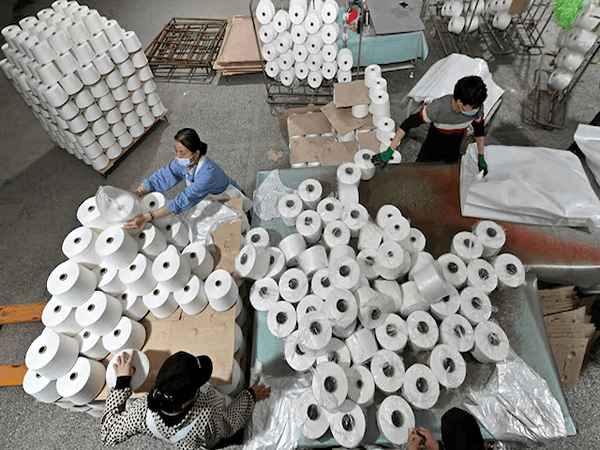Global Supply Chains: Unmasking China's Uyghur Repression
China's crackdown on the Uyghur populace in Xinjiang continues, with mass detentions and forced labor systems uncovered. The U.S., through the Uyghur Forced Labour Prevention Act, aims to disrupt this cycle. With global supply chains deeply affected, maintaining vigilance against these abuses remains essential for upholding human rights.

- Country:
- United States
For over a decade, China has intensified its severe repression against the Uyghur people, an indigenous Turkic Muslim group from the Xinjiang Uyghur Autonomous Region, or East Turkestan. Despite international condemnation and mounting evidence of significant human rights violations, China's authoritarian government persists in enforcing its strict control over the area, reports the Atlantic Council.
Since 2017, an estimated two million Uyghurs have been arbitrarily detained in large-scale internment camps. There, they face forced political indoctrination, torture, organ harvesting, and are compelled to renounce their cultural and religious identity. According to the Atlantic Council, the United Nations classifies these acts as potential crimes against humanity, with some governments, including the United States, officially labeling them as genocide. However, for those Uyghurs who escape the camps, a dire fate still awaits in state-sponsored forced labor programs. The Atlantic Council highlights two main mechanisms of this system: exploiting detainees for industrial work, and transferring Uyghurs under 'poverty alleviation' schemes to labor in factories and fields across China, all employing coercion, intimidation, and cultural erasure.
The Uyghur region is integral to global supply chains, producing significant portions of the world's cotton, tomatoes, solar-grade polysilicon, and aluminum. These resources, tainted by forced labor, permeate global markets, entering products such as clothing, electronics, agriculture, and even seafood in U.S. federal programs, as noted by the Atlantic Council. Consequently, the United States has spearheaded efforts to confront China's forced labor practices. The Uyghur Forced Labour Prevention Act (UFLPA), enacted in 2021, presumes goods from the Uyghur region are produced with forced labor unless proven otherwise. Since enforcement began in June 2022, U.S. Customs has seized goods worth over USD 3.69 billion, halting nearly USD 1 billion in imports.
By January 2025, 144 companies linked to Uyghur forced labor are on the UFLPA Entity List. The Atlantic Council warns that progress may stall without renewed focus. The Trump administration's closure of a loophole allowing small-value Chinese goods into the U.S. represents advancement. Yet, increased tariffs on U.S. allies could inadvertently encourage cost-cutting that revamps access to unethical Chinese supply chains. The Atlantic Council underscores the necessity for ongoing vigilance, recommending adding new entities to the UFLPA blacklist, enacting the No Dollars to Uyghur Forced Labour Act, and bolstering Uyghur-focused agencies with experts in regional and sanctions realms to curb Beijing's abuses.
Despite geopolitical tensions, the Atlantic Council stresses that protecting Uyghur human rights must remain central to U.S. foreign policy. With China's repression deepening, Washington must lead with consistency, clarity, and an unwavering commitment to justice.
(With inputs from agencies.)










